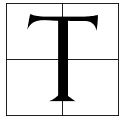Member-only story
5 Great Generals of the Roman Empire
Five generals who changed the course of the history of the Roman Empire

 The Roman Empire was a great empire in human history that evolved from the Roman Republic, and that was founded by Caesar Augustus who is also known as Octavian. His reign started in 27 BC and ended in 14 AD. Europe, North Africa, Britain, the Middle East, and Western Asia were once under the rule of this vast empire. Although the emperors didn’t all follow similar policies for their rule, expansions, and expeditions, the Roman Empire kept expanding, all the while still occasionally losing regions and provinces. The Roman Empire maintained a vast territory in different eras, across different continents.
The Roman Empire was a great empire in human history that evolved from the Roman Republic, and that was founded by Caesar Augustus who is also known as Octavian. His reign started in 27 BC and ended in 14 AD. Europe, North Africa, Britain, the Middle East, and Western Asia were once under the rule of this vast empire. Although the emperors didn’t all follow similar policies for their rule, expansions, and expeditions, the Roman Empire kept expanding, all the while still occasionally losing regions and provinces. The Roman Empire maintained a vast territory in different eras, across different continents.
Rome was the single capital of the empire for a long time but later on, the great Roman Empire was divided into two halves ruled by different emperors: the Western Roman Empire in Rome and the Eastern Roman Empire, known as the Byzantine Empire in Constantinople. In AD 476 following the defeat in the battle of Ravenna, the imperial emblems were sent to Constantinople to preserve the Roman Empire and its continuity in the East. The transfer of all the imperial insignia to Constantinople marked the end of the Western Roman Empire. The Eastern Roman Empire kept making its imprints on the annals of history until its fall at the hands of the Ottoman Empire in 1453.
The role of great warriors and generals in the rise of the Roman Empire
The Roman Empire maintained a regular army which was primarily assigned duties in three different spheres of military services. The army based in Rome protected the capital city and served as a policing force as well. The provinces were maintaining an army to defend the frontiers, the legions. The third part was the navy which protected the seafront of the Roman Empire.
The Roman empire at different intervals reformed the military and its services according to the needs of the time. For example, in 9 AD during the Battle of the Teutoburg Forest, Germanic tribes destroyed three full legions of the Roman Army. This was a great setback in terms of the number and strength of the Roman Army. The dreadful events drove the Romans to maintain a large number of legions which was…
